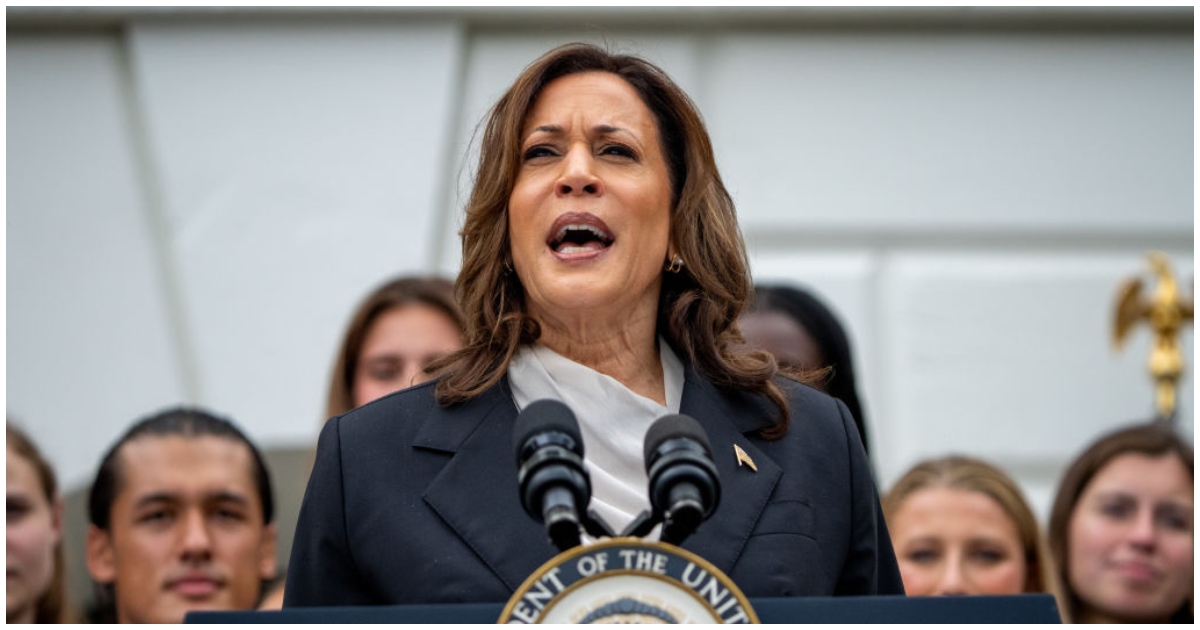Vice President Kamala Harris stands on the brink of making history once again. After President Joe Biden’s sudden withdrawal from the 2024 presidential race, Harris is now the frontrunner for the Democratic nomination.
If successful, she could become the first woman, first Black person, and first person of South Asian descent to lead the United States.
Biden’s Endorsement Propels Harris to Frontrunner Status
President Biden announced his decision to step aside on Sunday, following a challenging debate performance. He promptly endorsed Harris, stating:
“Democrats — it’s time to come together and beat Trump. Let’s do this.”
Biden praised his choice of Harris as his running mate, calling it “the best decision I’ve made.” This endorsement has catapulted Harris to the forefront of the Democratic field.
Harris responded to Biden’s announcement with grace. She described his decision as a “selfless and patriotic act,” emphasizing his commitment to the American people.
Breaking Barriers: Harris’s Historic Journey
Harris’s potential nomination represents a significant milestone in American politics. Her ascent to the presidency would shatter multiple glass ceilings simultaneously.
Born to immigrant parents in Oakland, California, Harris’s background reflects America’s diversity. She grew up immersed in the civil rights movement, attending demonstrations from a young age.
Harris’s career has been marked by groundbreaking achievements. She became the first woman and person of color to serve as California’s Attorney General. Later, she broke barriers again as only the second Black woman elected to the U.S. Senate.
Challenges and Opportunities on the Campaign Trail
Despite her historic potential, Harris faces challenges in securing the nomination and potentially the presidency. Recent polls show mixed feelings among voters.
An AP-NORC Center poll found that about 60% of Democrats believe Harris would perform well as president. However, her overall favorability among U.S. adults stands at around 40%.
Harris’s previous presidential campaign in 2020 ended before the primaries began. Yet, she has since gained valuable experience as Vice President. Her role as a vocal advocate for abortion rights following the overturning of Roe v. Wade has bolstered her standing among Democrats.
The Road Ahead: From Vice President to Potential Commander-in-Chief
If nominated and elected, Harris would join a small group of vice presidents who have ascended to the presidency. Her situation is unique, given the unprecedented focus on succession due to Biden’s age.
Harris has addressed this scrutiny head-on. In a September 2023 interview, she stated:
“Every vice president — every vice president — understands that when they take the oath they must be very clear about the responsibility they may have to take over the job of being president.”
As the campaign unfolds, Harris will need to navigate complex issues. These include immigration policy, where she has faced criticism, and appealing to a broad coalition of voters.
A Historic Moment for Representation in American Politics
Harris’s potential presidency would be a watershed moment for representation in American leadership. It would fulfill the hopes of many who have long awaited a woman of color in the Oval Office.
Her background as the daughter of civil rights activists adds poignancy to this possibility. If elected, Harris would embody the progress made since the days when her parents marched for justice.





